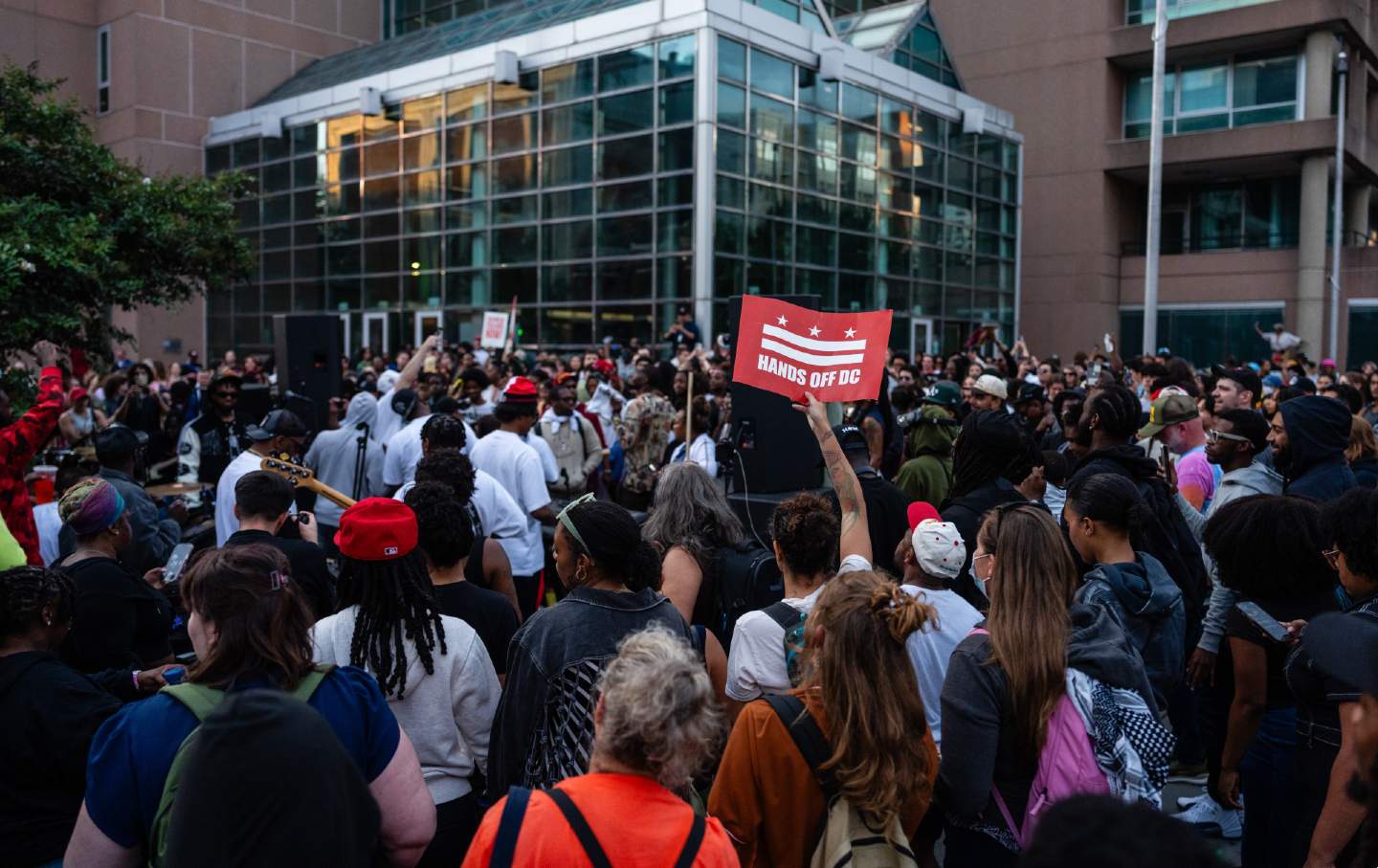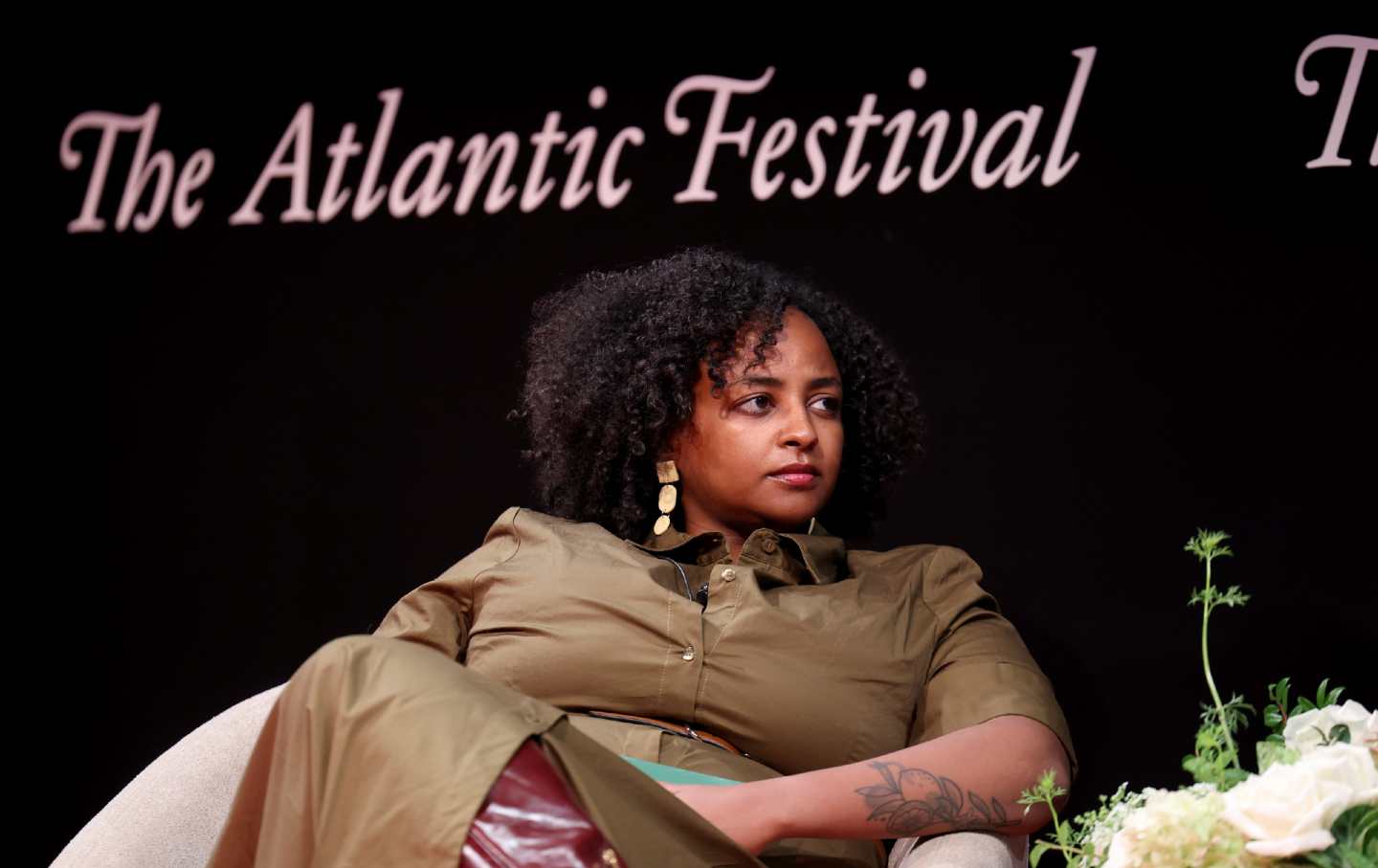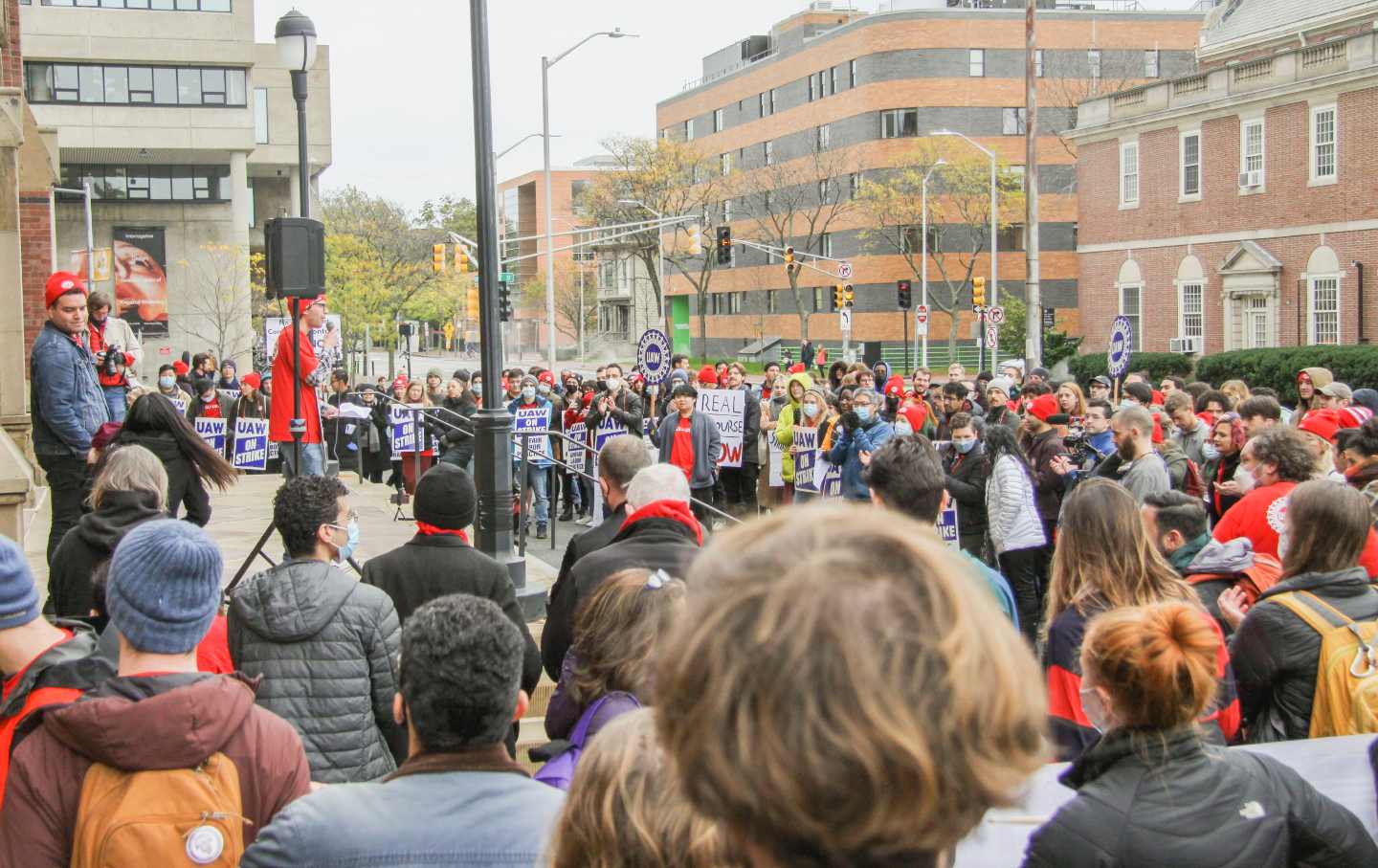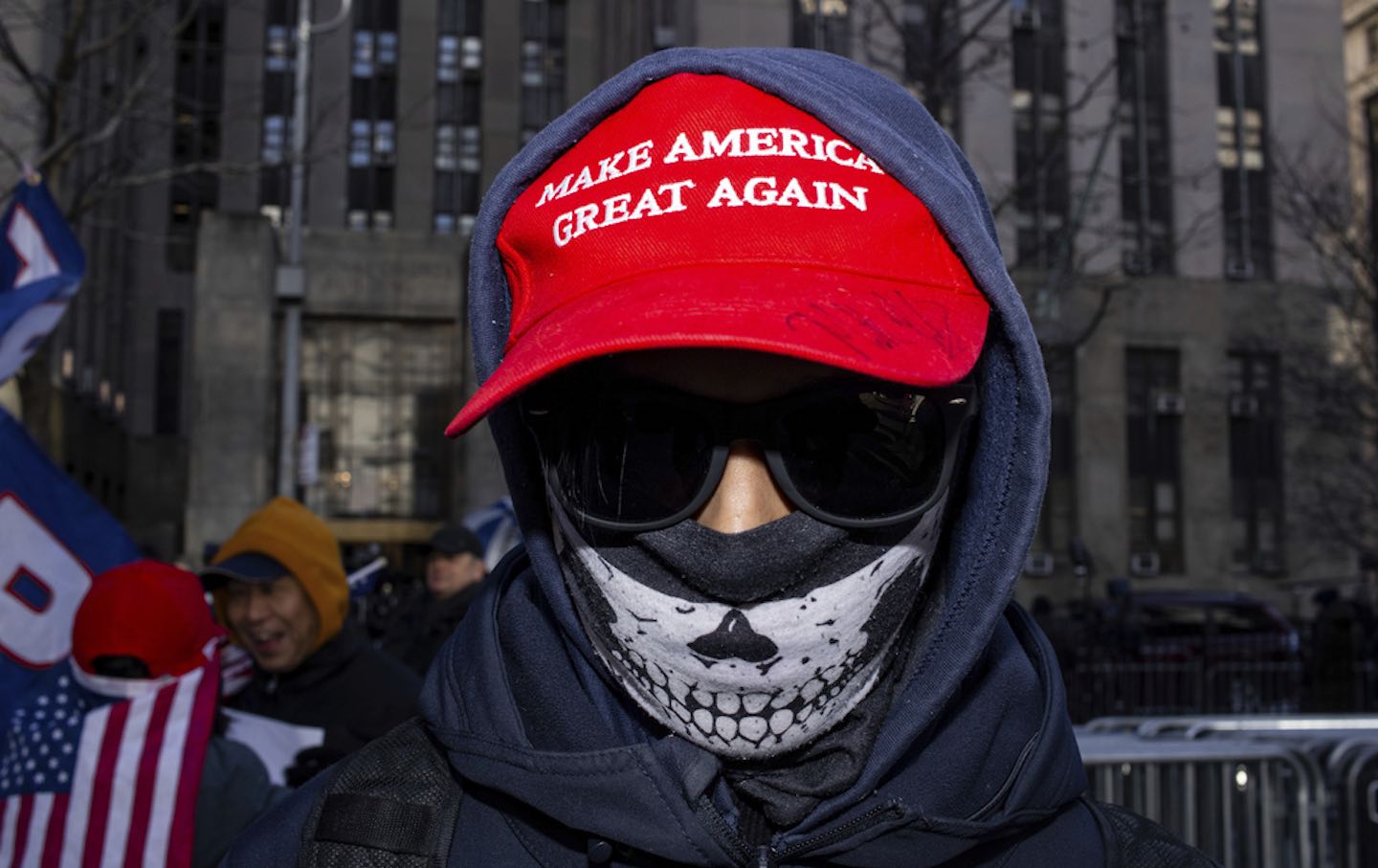A New Era of Reproductive Coercion: A Conversation With Kylie Cheung
The author’s new book explores how the Dobbs decision “created new avenues through which the state and abusive figures can collaboratively punish and control their victims.”
A New Era of Reproductive Coercion: A Conversation With Kylie Cheung
The author’s new book explores how the Dobbs decision “created new avenues through which the state and abusive figures can collaboratively punish and control their victims.”
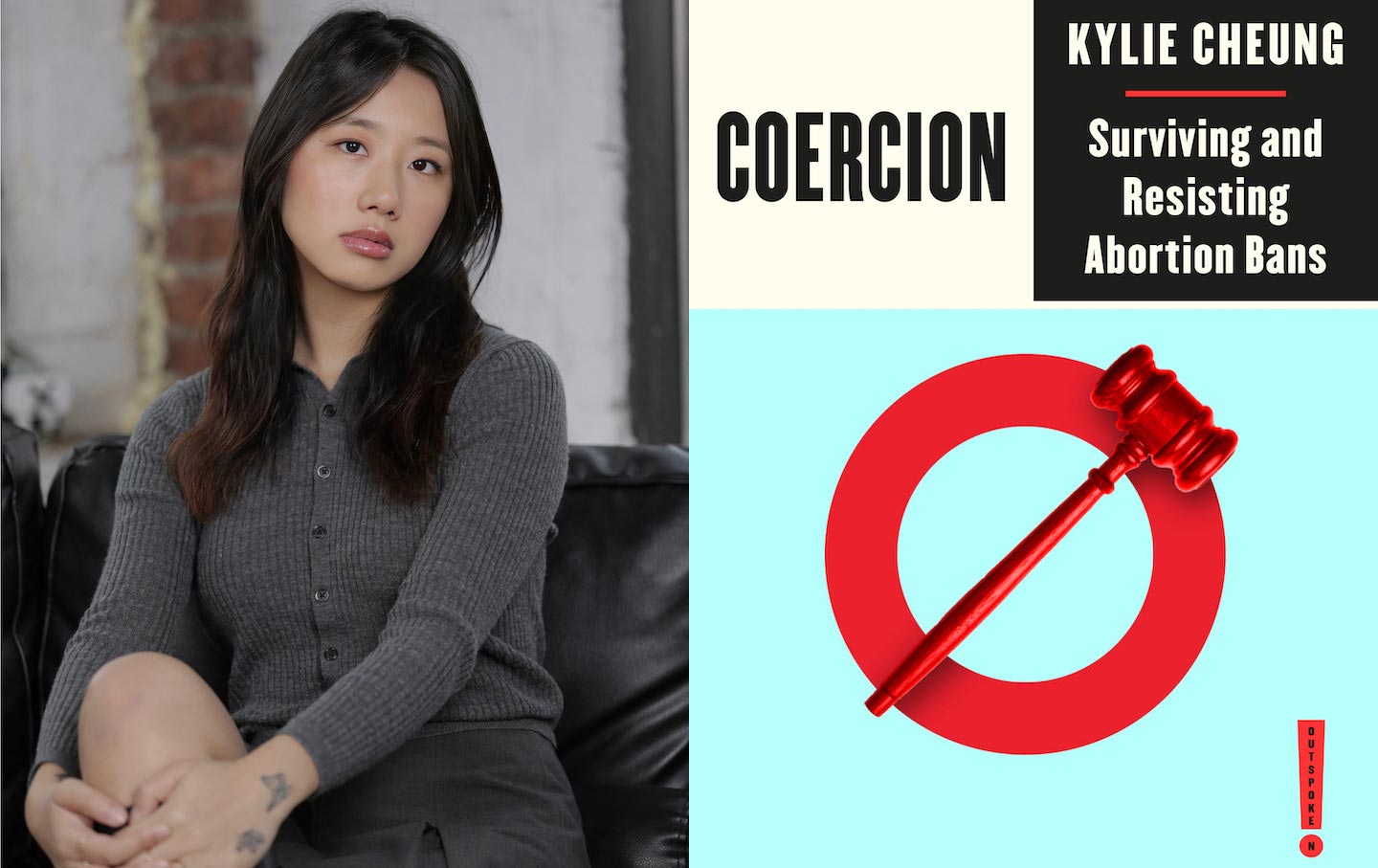
Writer Kylie Cheung’s new book, Coercion: Surviving and Resisting Abortion Bans, opens with a description of two pregnancy-related court decisions. One you’ve heard of: Dobbs v. Jackson Women’s Health Organization, the 2022 Supreme Court decision overturning the federal right to abortion. The second you likely haven’t: It’s McKenna v. Miller, a 2013 New York court decision that awarded child custody to Olympic skier Bode Miller after he sued his pregnant ex-partner Sara McKenna, who had moved from California to New York. The court declared McKenna’s “appropriation of the child while in utero” to be “irresponsible” and “reprehensible.” (An appeals court later reversed the decision.)
Cheung’s book connects the dots between these two decisions, showing how courts have often enabled reproductive coercion. Dobbs opened a new era of such coercion, Cheung shows, “creat[ing] new avenues through which the state and abusive figures can collaboratively punish and control their victims.” Cheung is a staff reporter at the newsletter Abortion, Every Day, author of Survivor Injustice, and a former staff writer at Jezebel.
I spoke to her in late July. This conversation has been edited for length and clarity.
—Amy Littlefield
Amy Littlefield: Tell me your definition of reproductive coercion and talk about the various forms it can take.
Kylie Cheung: The baseline definition that I use in the book is acts to punish or to control someone’s reproductive decisions. That can and often does come from [an] abusive partner, but I also argue that abortion bans and the different anti-abortion laws are also reproductive coercion. In the summer of 2023, the National Domestic Violence Hotline shared that calls involving reproductive coercion to their hotline had doubled between the year before Dobbs and the year after. One of those stories, which I include in the book, was a caller whose partner stole her birth control, resulting in an unwanted pregnancy, and she’s living a state that bans abortions. There were also many cases that the hotline flagged in a survey the following year that showed about 200 people said an abuser had threatened to call police on them if they sought abortion care or threatened to sue them if they did.
Anti-abortion lawmakers will often claim that their laws do not punish women, even though forced pregnancy itself is punishment. But the reality is that these laws are very confusing. While they don’t explicitly criminalize the pregnant person, it’s a natural conclusion that someone might make, if something is banned, that they could go to jail. That misinformation and confusion is very much exploited by abusive partners.
Another way that I see reproductive coercion in play is that a lot of domestic violence victims have told the hotline that access to a nearby reproductive health clinic was lifesaving for them. We’ve had these laws even before Dobbs—targeted regulations of abortion provider (TRAP) laws, for example—that are designed to shut these clinics down. That is also very violent toward victims, I would argue.
Something else that stood out to me was in 2024, researchers estimated that in the span of just over a year, there had been almost 65,000 rape-induced pregnancies in states that banned abortion. Rape-induced pregnancies can tie someone to their abuser for a lifetime.
AL: Your book really demonstrates how anti-abortion laws can be wielded against people who are already dealing with domestic violence.
KC: I’m sure you’ve been following those cases led by the extremist anti-abortion attorney Jonathan Mitchell. One of them was dragged out for almost two years, and it was targeting women who had helped [a Texas man named Marcus Silva’s] ex-partner have an abortion. There are a couple other cases where the crux is essentially the same: trying to wield the legal system to expose anyone who helps someone potentially have an abortion.
One of the most chilling things that we saw earlier this year: The Washington Post reported that the Texas attorney general’s office was working to recruit men to file litigation like this. I think that goes back to the case that I mentioned in the introduction of the book, McKenna v. Miller. Maybe these men really do know what they’re signing up for; maybe they are anti-abortion extremists, and they know deeply the implications of what they’re doing. But what seems more likely is that states like Texas and anti-abortion activists understand that there are so many men out there who want to punish and control their partners. Regardless of whether these men know or care very much about abortion policy, they have the same goal, and so this is a natural alliance.
AL: For the book, Sara Ainsworth of the legal advocacy group If/When/How told you, “Most of the people experiencing criminal and legal threats over their pregnancy, who call [If/When/How’s Repro Legal Helpline], are also experiencing domestic abuse.” It really struck me that there is a whole class of people in this country who are experiencing all these threats at once.
KC: A few years ago, I spoke to an expert at Pregnancy Justice, and something that she raised was, you don’t need an abortion ban to criminalize pregnancy. Even before Dobbs when so many people were criminalized related to pregnancy, it was under laws for manslaughter or feticide or child endangerment. All of that becomes possible when the state implicitly or explicitly recognizes fetal personhood. Something else that really concerns me related to pregnancy criminalization is that a pregnant person can be punished not just for their own behaviors, but someone else’s, which is very dangerous for victims. In 2019 there was the case of Marshae Jones, who was jailed after being shot in the stomach and miscarrying. We’ve also seen other cases of women who have experienced sexual abuse and remain in this place of trauma and might then struggle with substance abuse and then might not be able to receive help because they fear criminalization or losing their children. There are just so many ways that surviving sexual or domestic violence can put someone on this pipeline to criminalization. Then with the added dimension of pregnancy, there’s all the different ways that you are exponentially more policed when you are pregnant for behaviors that you otherwise would not be policed for.
AL: You have a chapter in the book on rape exceptions to abortion bans, which, you argue, are often meaningless in practice. You write: “Gender-based violations are impossible to “prove” in a fundamentally misogynistic society that does not recognize even the most egregious behaviors—like, say, forced pregnancy—as violent toward women and victims.” Tell me about your research on rape exceptions.
KC: Conversations about exceptions can be so difficult, because as so many of us are put in these positions of fighting for survival, or whatever crumbs you might be able to pick up, my hope certainly would be that if a state has an abortion ban with a rape exception, that someone would be able to access it. I would never root against that. But look at the case a few years ago of a 12-year-old girl in Mississippi whose family didn’t know about the ban’s rape exception, and no one in the state’s government could tell a Time reporter how someone would go about accessing it. And the simple fact is that when the threat of prison is in the air, very few doctors are going to provide that service under any circumstance.
For years now, my work has focused on the intersections between reproductive justice and survivor justice, and I would encounter what felt like this similar pattern of how we’re told there are “good” rape victims and “bad” rape victims, and then we’re told also implicitly and explicitly that there are “good” abortions, like if a child rape victim needs to access abortion, or supposedly “bad” abortions, like when someone accesses abortion because they don’t want to be pregnant, which is the only reason you should ever need. The reality remains that under patriarchy and under rape culture and under abortion bans, all survivors and all abortion seekers are dehumanized and denied agency by their abuser or by the state. What is very much the reality is that these exceptions don’t work in practice. And I very much argue that anti-abortion leaders know these exceptions don’t work. They simply want to sanitize their laws, or they want the good PR of pretending to care about victims, while in reality ensuring that almost no one can actually get care.
Popular
“swipe left below to view more authors”Swipe →The other frustration I have is that these exceptions spread this myth that it’s easy to prove a rape, or that if you come forward and say you were raped, that police or other authorities will believe you and it will all be easy and not be traumatizing.
In 2023, there was an effort from Tennessee Republicans to add a rape exception to the state’s abortion ban, but it would have threatened anyone who supposedly lied about being raped with three years in prison. Ultimately, that bill wasn’t successful, but it wasn’t successful because there weren’t enough Tennessee Republicans who supported a rape exception. That is also something I struggle with; these exceptions are largely PR, I would argue, but it’s also very scary that we are at a time when so many Republicans don’t even think they need that PR anymore.
AL: My favorite passage from the book is in the Conclusion, where you quote the survivor and activist Alison Turkos, who says, “Survivors and someone who’s seeking abortion care want the same thing—we want control over our bodies, at any time, for any reason.” You write: “Her words have stayed with me. As a survivor, myself, I’ve often reflected on how a rape doesn’t end with a rape; it’s followed by everything the world does to you after. Abusers and the state often collude to enforce an endless feedback loop of violence against rape victims, against pregnant people, against those who are left without options.” Can you reflect on that?
KC: Two years ago, my book Survivor Injustice came out; the thesis essentially was that, contrary to a lot of liberal activism that erroneously framed gender-based violence almost entirely as interpersonal acts by abusive individuals, all too often gendered abuse manifests as state violence and the state independently itself functions as an abuser. With this book, I saw an opportunity to build on that central thesis from my previous book but zero in on what I see as arguably the most overt and egregious form of state gender-based violence: abortion bans.
AL: In your book you mention that you had an abortion about two months before the 2024 election. I wanted to ask you about that election. It feels like so much of what you write about is encapsulated in the ranks of the Trump administration.
KC: Trump’s immediate nominations were almost this Sausage Party of men who had allegations, whether that was RFK Jr. or Elon Musk or Matt Gaetz’s short-lived nomination.… The fact that Trump felt that he could do it spoke to just how emboldened he was. I didn’t see those nominations as accidental; I felt that they were supposed to send this message that felt like retaliation for the MeToo movement, which came into the mainstream almost a decade ago. That backlash is so inseparable from, you know, of course this administration gravitates towards sexual predators when the position of our president is that we should not have that most basic control over our bodies.
AL: Something else I appreciate about your work is your willingness to acknowledge the genocide in Palestine and to reflect on how the United States’s role in supporting it is connected to the issues of reproductive coercion you discuss in the book. Can you reflect on how you see what’s happening in Gaza as an issue of reproductive justice?
KC: Early in the book it was really important for me to present reproductive justice as this international framework of demanding that all of us can parent or not parent in safe, healthy environments. It is fundamentally inseparable from the work of reproductive rights advocates in the United States when this is what our tax dollars are funding. It’s so simple that reproductive justice and bodily autonomy are impossible under genocide and under apartheid and starvation conditions that the United States has very much been facilitating.
When I was at Jezebel, I spoke to so many different healthcare workers and humanitarian agencies about what they saw: skyrocketing miscarriages and maternal mortality, or C-sections and all of the worst kinds of pregnancy complications that are happening in the United States, happening there without anesthetic or without access to a hospital, or happening in tents, and parents being forced to hold the body parts of their babies in plastic bags. There’s no reason why you or I, or anyone in the United States is more deserving of these fundamental reproductive and human rights than people across occupied Palestine.
I really don’t believe that anyone who claims to care about our most basic rights here in the United States can ignore this existential moral issue of our lives, which is the genocide that Israel is perpetrating in Palestine. And yet, as I was able to write about in the book, so many of the same politicians in the United States who really present as champions on reproductive rights are very much either ignoring this crisis or very actively contributing to it by sending more money and weapons to Israel.
Take a stand against Trump and support The Nation!
In this moment of crisis, we need a unified, progressive opposition to Donald Trump.
We’re starting to see one take shape in the streets and at ballot boxes across the country: from New York City mayoral candidate Zohran Mamdani’s campaign focused on affordability, to communities protecting their neighbors from ICE, to the senators opposing arms shipments to Israel.
The Democratic Party has an urgent choice to make: Will it embrace a politics that is principled and popular, or will it continue to insist on losing elections with the out-of-touch elites and consultants that got us here?
At The Nation, we know which side we’re on. Every day, we make the case for a more democratic and equal world by championing progressive leaders, lifting up movements fighting for justice, and exposing the oligarchs and corporations profiting at the expense of us all. Our independent journalism informs and empowers progressives across the country and helps bring this politics to new readers ready to join the fight.
We need your help to continue this work. Will you donate to support The Nation’s independent journalism? Every contribution goes to our award-winning reporting, analysis, and commentary.
Thank you for helping us take on Trump and build the just society we know is possible.
Sincerely,
Bhaskar Sunkara
President, The Nation

